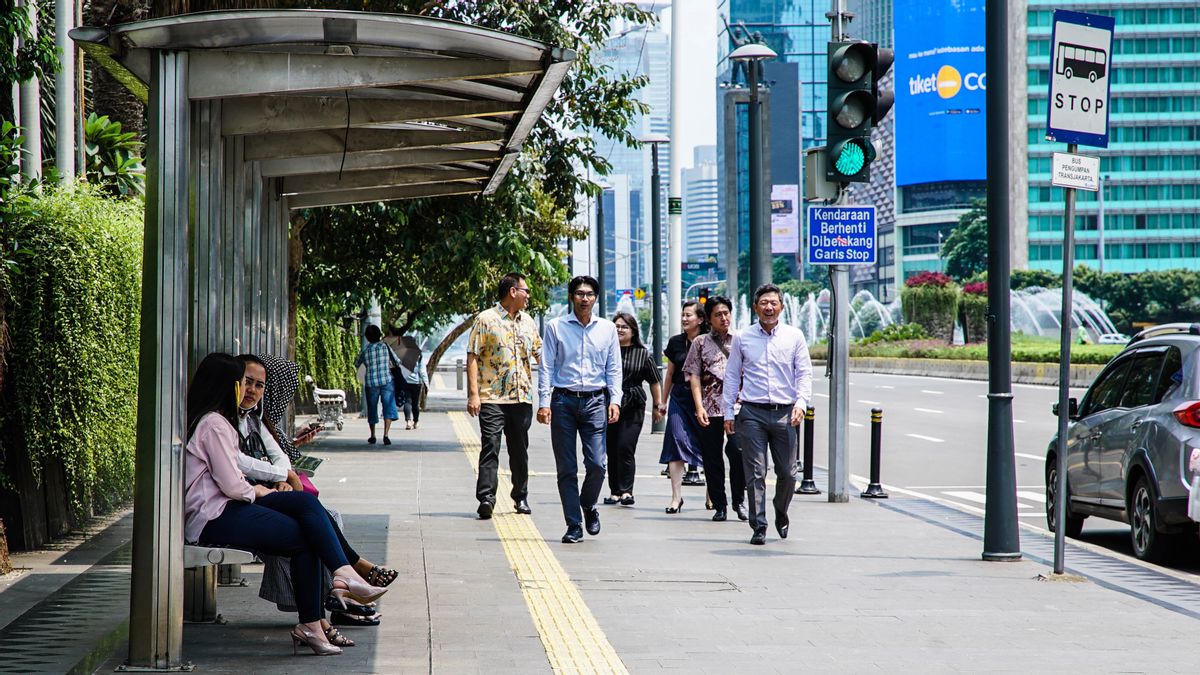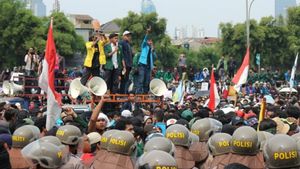JAKARTA - The government urges people not to do outdoor activities and social distancing to prevent the spread of the corona virus or COVID-19.
In fact, the DKI Jakarta Provincial Government has sent a letter to the company to implement a home work system for its employees for a period of two weeks until April 5.
In fact, there are still many people who do outdoor activities and do not follow this appeal.
Analysis of public policy Trubus Rahadiansyah said that the government's appeal was not being obeyed by the community because it was collided with the needs of daily life. Those who do not follow this appeal are mostly people who have daily income and need physical presence in their offices.
Therefore, Trubus advised the government to ensure all community needs can be met so that the call for not doing outdoor activities can be carried out properly.
"Actually, this is a stomach problem. If the government can ensure that people's needs are met, they may not come out to work," Trubus told VOI, Monday, March 23, 2019.

Trubus suggested that guaranteeing the fulfillment of community needs could be done in two ways. First, providing direct cash assistance (BLT) through the Jakarta Smart Card (KJP). So, people can meet the needs of life as long as the appeal not to be outside the room is carried out.
Second, by coordinating with private companies. This is because those who do outdoor activities are not permanent employees or daily workers who are worried that when they don't come to work, they will lose their livelihoods.
"The government must coordinate with private companies about the fate of the people who work daily. There must be a guarantee that they will not lose their workers as long as they are not asked to leave the house," said Trubus.
Meanwhile, a number of countries have implemented lockdowns or lockdowns during the COVID-19 pandemic. They also apply sanctions to people who violate them.
Indonesia has not implemented a lockdown policy, but people's movements are restricted. President Joko Widodo emphasized that instead of choosing the lockdown option, the government appealed to the public to reduce their mobility and the need to maintain social distancing so that the spread of the corona virus can be inhibited.
Countries that apply lockdowns and provide sanctions, for example Italy. The government provides penalties in the form of imprisonment for three months or a fine of 206 euros or around 3.5 million rupiahs for citizens who violate the rules. Then, the French government gave a fine of 135 euros or about 2.3 million rupiahs to citizens who violated it.
Meanwhile, in Argentina, security forces will patrol the streets to ensure that no one leaves the house for non-urgent matters. Then, the Jordanian government imposed restrictions on the movement of people outside this house. Anyone who violates this rule can face up to one year in prison.
Such sanctions, said Trubus, are ineffective in Indonesia. This is because what the Indonesian people need today is the necessity of a life that is guaranteed. So, it seems as if you are more afraid of not being able to eat compared to the COVID-19 outbreak.
"Action seems ineffective because it is outdone by necessity," said Trubus.
The English, Chinese, Japanese, Arabic, and French versions are automatically generated by the AI. So there may still be inaccuracies in translating, please always see Indonesian as our main language. (system supported by DigitalSiber.id)













